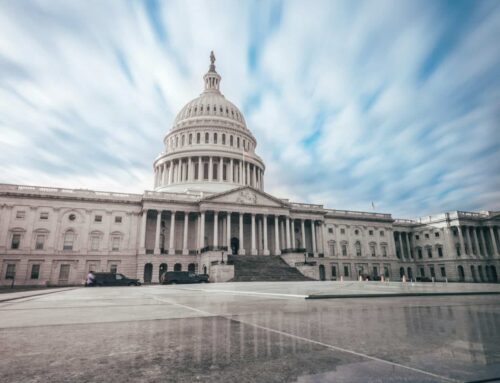Some government contractors took out loans from the Paycheck Protection Program even as they were paid for government work during the pandemic, a Wall Street Journal analysis shows.
The forgivable loans were a lifeline for thousands of hard-hit businesses whose revenue evaporated this spring. Many contractors also judged themselves eligible even though they were working on active government projects, according to an analysis of recently released data on PPP borrowers and other records.
The issue is on the radar of government auditors and watchdog groups examining roughly 4.9 million companies who tapped the $670 billion program approved by Congress to help small businesses cope with the fallout from the coronavirus pandemic.
“If you had contracts on the books and were being paid and were in a strong financial situation, you shouldn’t have taken the money,” said Steve Ellis, president of Taxpayers for Common Sense, a nonpartisan government-spending watchdog.
The Small Business Administration, which is overseeing the program, has promised to scrutinize PPP loans for any improprieties. Legal experts, however, note that the law only required borrowers to say they faced “economic uncertainty” in seeking loans, with no requirement to document actual losses. Under current rules, PPP loans will be covered by taxpayers as long as companies spend more than 60% of funds on payroll and meet other criteria.
Florida was among the top recipients of PPP funds, with loans going to more than 393,000 firms including government road contractors. When Gov. Ron DeSantis told Floridians to stay at home starting April 1, he said the state would speed up road projects by closing more lanes on empty highways.
Two days later, the PPP opened for applications. At least 68 Florida road contractors with active state projects were approved for loans of greater than $150,000, according to the Journal analysis.
Construction companies say they faced significant uncertainty in early April, with pandemic fears at their height.
“I can assure you: If not for the PPP loan, there would have been a lot more layoffs,” said Ananth Prasad, president of the Florida Transportation Builders’ Association. Mr. Prasad said many construction projects that don’t have state funding have stalled.
A Florida Department of Transportation spokeswoman noted that construction companies typically have contracts with multiple agencies, and that while the state accelerated its roadwork many cities, counties and private developers slowed or stopped their projects. She declined to comment on any specific companies.
Treasury Department officials, who are running the PPP program jointly with the SBA, say they intentionally set a low bar for receiving the funds, which were distributed by banks with a government guarantee. Allowing businesses to certify their own eligibility “enabled the rapid delivery of PPP loans to small businesses during a crisis when over 10 million Americans lost their jobs in a two-week period,” said a Treasury Department spokesman.
One beneficiary was the Miami-based subsidiary of Spanish construction firm Sacyr SA . As of early April, it was set to receive more than $224 million on four Florida projects through 2021, according to an analysis of records from the Florida Department of Transportation. In addition, Mr. DeSantis on April 1 greenlighted Sacyr to accelerate work on an I-75 interchange outside Sarasota.
Eight days later, Sacyr Construction USA LLC was approved for a forgivable PPP loan of between $2 million and $5 million.
“There was significant doubt as to whether our U.S. construction projects would be impacted or suspended altogether. Those doubts remain to this day,” a spokeswoman for Sacyr SA said.
Sacyr SA employs more than 42,000 people world-wide and reported more than $4 billion in revenue in 2019, according to its website. The PPP was generally open to firms who, together with their affiliates, have 500 or fewer full-time employees.
The spokeswoman said the company’s U.S. subsidiary has about 350 employees and was in full compliance with the PPP rules at the time it applied for the loan. She noted that the SBA’s guidance for foreign-based firms has changed since early April.
Ajax Paving Industries of Florida LLC was approved for a taxpayer-funded loan of between $5 million and $10 million on April 14, the only Florida road builder the Journal identified that got a loan in the maximum range allowed under the PPP. A related company, Michigan-based Ajax Paving Industries Inc., also got a loan worth between $5 million and $10 million.
Under Florida state contracts in place as of early April, Ajax Paving was set to receive more than $68 million through 2022, records show. On May 5 the company was awarded additional contracts totaling $5.6 million.
Halley Engineering Contractors Inc. had one of the largest backlogs of committed roadwork in Florida when the pandemic hit, according to the Journal analysis. Even without two contracts the company won this spring, it could expect more than $267 million of work in the state under projects reaching into 2024.
Halley Engineering’s PPP loan, worth between $1 million and $2 million, was approved April 10. Ajax Paving and Halley Engineering didn’t respond to requests for comment.
Like all companies that applied for PPP loans, executives of the construction companies had to certify on the application that “current economic uncertainty makes this loan request necessary to support the ongoing operations of the applicant.”
The federal government has regulations aimed at preventing contractors working for its agencies from double-dipping, which could require some contractors to pay back PPP funds in the form of a “credit” on their contract. Those rules don’t directly apply to state contractors.
The issue of government contractors receiving PPP funds while still being paid to work is under review by the Government Accountability Office, a federal auditing agency that recently began reviewing the list of loan recipients. “We’re aware of that potential issue but have not made any final determinations as of yet,” a spokesman said.
Some officials want to attach more strings to future pandemic aid. “I think this time we need to have a revenue test and make sure that money is going to businesses that had significant revenue declines,” Treasury Secretary Steven Mnuchin said Friday.
Rick Scott, Florida’s junior U.S. senator and former governor, is among lawmakers pushing for a similar restriction.
“I have talked to plenty of businesses that think they could have qualified” for the PPP but didn’t apply, he said in an interview. “They knew it would be wrong when they are going to make plenty of money this year.”
The inspector general of the SBA and congressional oversight committees have also said they are looking into the eligibility of companies receiving PPP loans.
Companies must apply to have the loan forgiven, and “if SBA determines that a borrower is ineligible for a PPP loan, SBA will direct the lender to deny the loan forgiveness application,” the spokesman said.
Mr. Prasad, of the Florida road builders’ trade group, said companies would be prepared to pay back PPP funds if their business isn’t badly affected.
—Chad Day contributed to this article.










